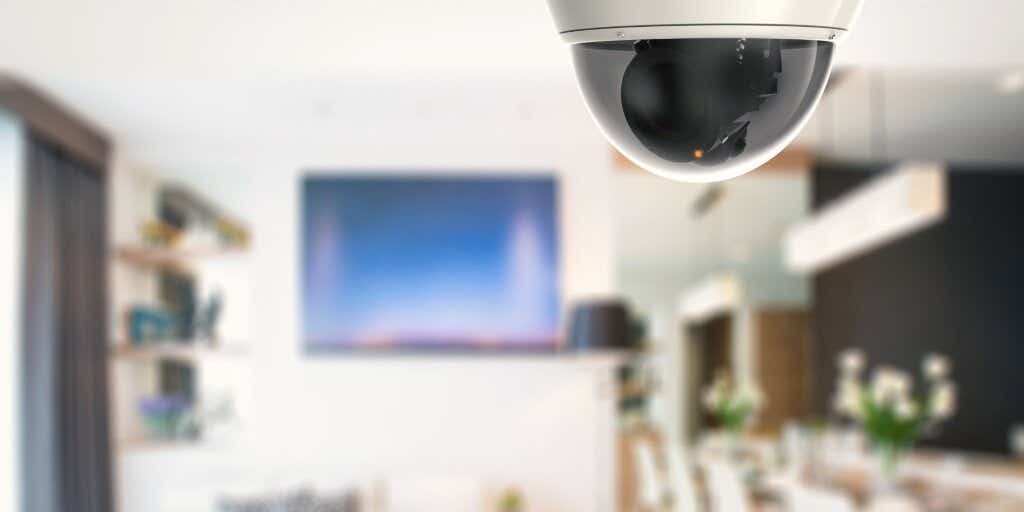Compare home insurance quotes
See a range of home insurance quotes in just a few minutes when you compare with Uswitch
Protecting your home
With the Office for National Statistics estimating 2.9 million thefts in England and Wales in year ending September 2024, it’s more important than ever to protect your home and its contents. You may be wondering, how can I protect my home from a break-in? There are a number of simple steps you can take to deter burglars and make your home less likely to be broken into.
It is also a good idea to have valid home insurance, so you can claim back for the cost of repairing or replacing anything in your home, in the event of a burglary (or another event, such as fire or flooding).
Dealing with the aftermath of a burglary can be upsetting and time-consuming, so it is a good idea to make your home as safe as possible to prevent breaking and entering taking place at all.
How can I protect my home from burglary?
Read on to find out more about home security and how to prevent burglars from taking advantage of your home in the first place.
These top 10 home security tips from the Master Locksmiths’ Association can help you to secure your home while ensuring you are still covered by any home insurance policies.
1. Set your alarm
If you’re serious about security, you might want to consider installing an alarm system. As well as providing another layer of security to your home, it could help to reduce your home insurance premiums. But if you have one installed, it needs to be activated to be effective (and to avoid invalidating your insurance).
Make a habit of setting your alarm whenever you leave the house, and before you go to bed at night. If you struggle to remember, leave yourself a note at the door, or set up reminders on your phone until it becomes a habit.
2. Update your locks
Installing certain approved lock types can reduce your home insurance premium. This is because they're the safest and the most likely to prevent burglars from gaining entry into your home. Some burglars become familiar with certain locks, and have developed methods to defeat them. So it’s important to have modern, professionally fitted locks.
Our guide on approved locks provides more information. If you have any doubts, a qualified locksmith (such as a Master Locksmith Association member) can help you choose and install suitable locks to meet insurance requirements.
3. Secure your windows
The same rule applies for windows — if you can prove to your insurer that your windows are secure, you may be able to get a more affordable insurance quote. But to ensure your home is safe, you must remember to lock your windows whenever you leave the house. Your insurer may specify the type of window and door locks they would like you to install in order to qualify for an insurance policy with them.
In the warmer months, you should avoid leaving windows open at night as this provides an easy entrance point for burglars. You should also check the condition of your windows frequently, as rusty locks and rotten frames can make access even easier and are more vulnerable to being forced open.
4. Hide valuables
Make sure you store valuables, such as jewellery, tablets and other gadgets out of sight as they can attract opportunistic thieves — and burglars aren’t known for resisting temptation. You might also want to consider investing in a safe; an MLA-approved locksmith can supply and install one to meet your needs.
It’s also advisable to keep your car keys hidden as many burglars will break into homes just to take cars. Keep your keys away from your front door to avoid ‘letterbox fishing’, a tactic where burglars use a fishing rod or long magnetic implement to grab keys through a home’s letterbox.
5. Keep your keys in a safe place
You might think your spare key is safe under the doormat or plant pot, but burglars know all the common hiding places. Never leave your keys in the inside of your door, as burglars can use the ‘fishing’ technique to reach them through the letterbox and let themselves into your home. Some insurers won’t pay out on a claim if there’s no sign of forced entry — so it’s even more important to keep your keys out of the hands of burglars.

6. Invest in smart lighting
Many burglars operate in darkness with the aim of being as discreet as possible. Motion sensor lighting can alert you or your neighbours to movement near your home and can be enough to put a burglar off. You can also invest in automated low-energy lighting to come on at intervals. This will make it look like your home is occupied when you’re away, which can be an effective deterrent.
7. Don’t make it obvious when you’re away
It’s much easier for a burglar to enter your home and make off with your belongings if you’re not there to disturb them. This is why some burglars target homes when their occupants are away on holiday.
Don’t make it obvious when you’re away — cancel any milk or newspaper deliveries, so they don’t pile up outside your door. Also consider letting a trusted friend, or have neighbour check in on your home and collect any post that accumulates. It’s best to avoid advertising your absence on social media, especially if your posts are public. That includes photos of you and your family relaxing by the pool, or posting details of your holiday - all of which make it clear that you are not at home.
8. Invest in outbuilding and shed security
You may have secure locks on your home’s doors and windows, but have you thought about the valuables in sheds and outbuildings?
It’s not only the contents of these outbuildings you need to worry about — burglars can use your own tools against you by borrowing ladders or heavy tools to help them gain entry into your home.
9. Avoid DIY disasters
When installing security measures or working on projects that can affect your home’s security (such as doors and windows), it’s not worth taking the risk. Also bear in mind that shoddy DIY may not be covered on your home insurance policy, putting your home and contents at further risk.
10. Check your security regularly
Don’t take it for granted that all of your security measures are operating as they should be. If you have an alarm or any smart lighting, you should check them regularly. It’s sensible to undertake an annual check to ensure all of your security measures are up to date (this is a good time to check your smoke alarms and carbon monoxide detectors too). Self-testing is a good practice, but a professional can provide a more thorough assessment.
Along with following these home security tips and tricks, don’t forget to complement your security measures with home insurance. Depending on your circumstances, you might benefit from buildings insurance, contents insurance, or both.
If you already have home insurance, remember it’s important to regularly check your policy, especially when you’ve made a big purchase or any changes to your home.
If after reading our home security tips and you’re not covered, or want to search for a better deal, compare quotes from leading providers.
Compare home insurance quotes
See a range of home insurance quotes in just a few minutes when you compare with Uswitch

